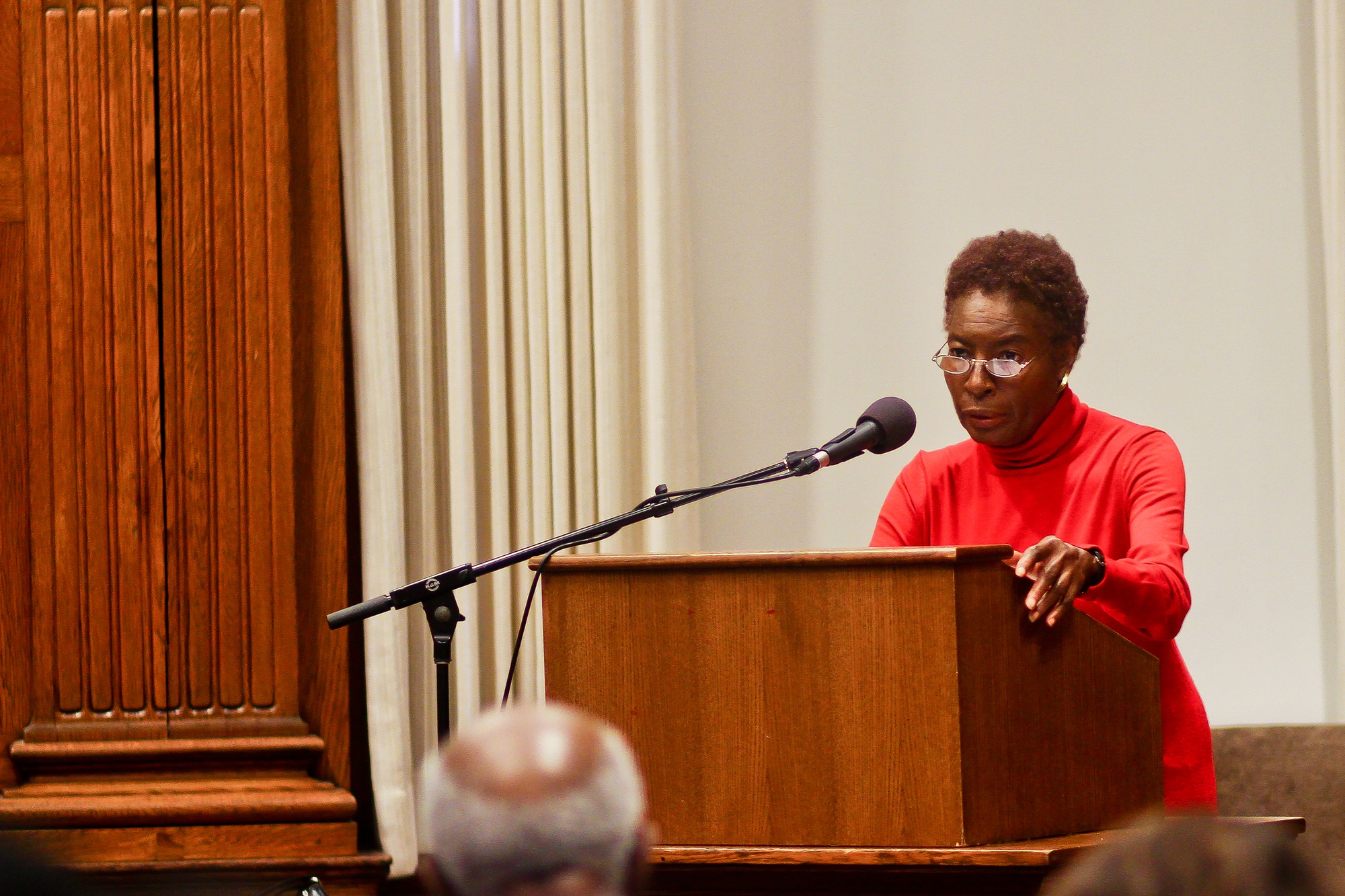
News
Summers Will Not Finish Semester of Teaching as Harvard Investigates Epstein Ties

News
Harvard College Students Report Favoring Divestment from Israel in HUA Survey

News
‘He Should Resign’: Harvard Undergrads Take Hard Line Against Summers Over Epstein Scandal

News
Harvard To Launch New Investigation Into Epstein’s Ties to Summers, Other University Affiliates

News
Harvard Students To Vote on Divestment From Israel in Inaugural HUA Election Survey
Scholar Relates Slavery, Feminism in Du Bois Lecture

UPDATED: October 16, 2014, at 1:25 a.m.
Vanderbilt English professor Hortense Spillers connected the stories of 18th century female slaves to the modern feminist movement in the first installment of her W.E.B. Du Bois Lecture Series on Tuesday.
Spillers cited Thomas Jefferson’s relationship with slave Sally Hemings, and the children he fathered with her, as “microcosmic” of the relationship between African-American women in the early American republic and the feminist movement.
“[The presence of Hemings’ children with Jefferson] exposes Jefferson himself as a figure who was riddled with spiritual ambivalence,” she added. “This was passed into the bloodstream of the nation’s ongoing identity crisis.”

Spillers argued that “sentimentality” hid the truly degrading nature of Hemings’ relationship with Jefferson, focusing particularly on analyzing Annette Gordon-Reed’s book, “Thomas Jefferson and Sally Hemings: An American Controversy,” a scholarly account of the relationship.
She also noted the significance of the 18th century revolutionary period in defining the basic parameters of human rights and in the forming a national identity.
“This new global subject of the human, now claims for herself, himself, those imprescriptible rights of life, liberty, and the pursuit of happiness that the 18th century revolutionary world set in motion,” Spillers said.
In closing the lecture, University Professor Henry Louis Gates, Jr. and Spillers discussed the decision of Hemings to return to America with Jefferson instead of becoming a free citizen of France.
Linda M. Heywood, professor of African American studies and history at Boston University who attended the lecture, commended Spillers’ treatment of the sexual relationships between slaves and masters. “There’s this hidden world of sentiment and the difference between sex and love and public and private,” she said. “It’s difficult to say exactly what emotion is, but I think she, by looking at literature, was able to humanize it,” Heywood added.
Attendees also noted the depth of Spillers’ research in anticipation of her next two lectures.
“There is hardly a subject her pen has not touched,” said Glenda Carpio, a professor of English and African and African American Studies, who introduced Spillers.
Spillers will continue the W.E.B. Du Bois series with her second lecture, on “The Problem of Sentiment: The Hemingses of Monticello,” Wednesday in the Barker Center.
This article has been revised to reflect the following correction:
CORRECTION: October 16, 2014
An earlier version of this article incorrectly identified the genre of Annette Gordon-Reed’s book, “Thomas Jefferson and Sally Hemings: An American Controversy." In fact, the book is a work of historical scholarship.
Want to keep up with breaking news? Subscribe to our email newsletter.
